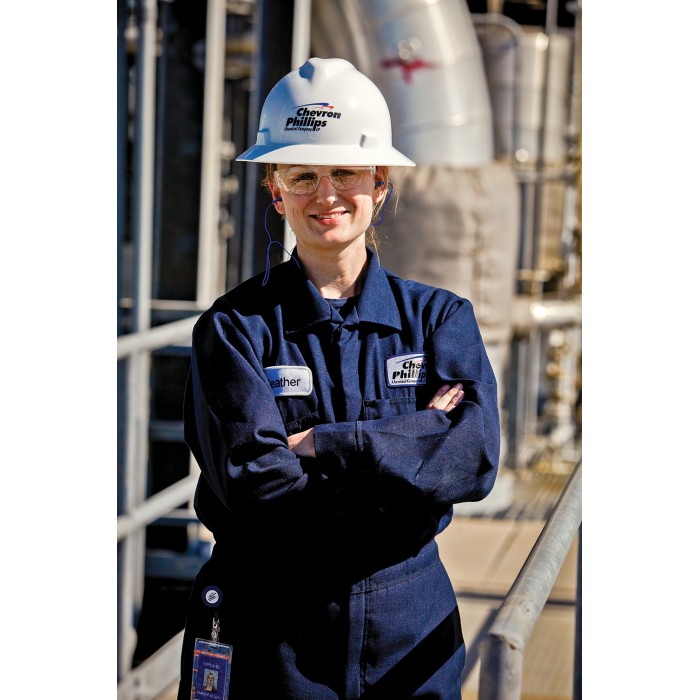Advertisement
Grab your lab coat. Let's get started
Welcome!
Welcome!
Create an account below to get 6 C&EN articles per month, receive newsletters and more - all free.
It seems this is your first time logging in online. Please enter the following information to continue.
As an ACS member you automatically get access to this site. All we need is few more details to create your reading experience.
Not you? Sign in with a different account.
Not you? Sign in with a different account.
ERROR 1
ERROR 1
ERROR 2
ERROR 2
ERROR 2
ERROR 2
ERROR 2
Password and Confirm password must match.
If you have an ACS member number, please enter it here so we can link this account to your membership. (optional)
ERROR 2
ACS values your privacy. By submitting your information, you are gaining access to C&EN and subscribing to our weekly newsletter. We use the information you provide to make your reading experience better, and we will never sell your data to third party members.
Employment
Office Hours
Navigating career decisions
Learning when to act quickly and when to slow down and deliberate
by Jen Heemstra, special to C&EN
December 5, 2021
| A version of this story appeared in
Volume 99, Issue 44

Decision fatigue became real in my first month as a faculty member. As I was establishing my independent lab, every day presented a new set of decisions. Do we buy the HPLC autosampler or invest in a microplate reader? Should we hire a postdoc or recruit a larger number of students? Does this experiment fit better in Aim 1 or Aim 2 of this proposal? I would then return home to more questions, such as “Which of these 32 paint colors should we choose for the dining room?” I could feel my brain shutting down.
Even when you settle into a new position and the rate of decision-making subsides, making choices can still cause significant stress. Every decision we make involves some risk—it’s impossible to have all the information, and no outcome is guaranteed. And the earlier you are in your career, the more important those outcomes may be.
While we can’t avoid decisions entirely, we can learn how to manage the process better. A critical starting point is to recognize that decisions have differing levels of importance and thus require varying levels of analysis and deliberation. This may sound obvious, but it can run counter to our natural instincts. In my example, there is a big difference between a regrettable paint choice and my research group not having an essential piece of equipment. Yet more than once, I rushed through a critical decision only to find myself stuck obsessing over the options for something unimportant.
How do we navigate decisions? I’ve found that white-water rafting offers a helpful analogy. When rafting, you’re confronted with rapids and other obstacles, and you must choose a path through them. But the consequences vary. If you make a mistake on a small rapid, you might just get a bumpy ride. However, other mistakes can overturn your raft and throw everyone into the river. The key is recognizing the difference.
This applies to our careers as well. Just as we can exhaust ourselves if we paddle against the current to study every small rapid, we can get stuck if we obsess over small daily choices, such as which enzyme kit to buy or presentation template to use. Once we recognize these decisions as having relatively low stakes, we can move forward. If our choice doesn’t work out, it could be slightly unpleasant, but we’ll learn from it and keep going.
At the same time, we need to be vigilant in listening for huge waterfalls up ahead—those big decisions that have long-term consequences, such as choosing a PhD adviser or pursuing a new research project. In these cases, it is worth the time and effort to stop, seek advice from your peers and mentors, and carefully weigh your options before moving ahead into the unfamiliar terrain. Perhaps most importantly, just as professional white-water rafters rely on experience to assess risk and make choices, we can learn from our decisions—both those that work out well and those we regret—to become more skilled at navigating the rapids of our career paths.
In both white-water rafting and our careers, we often don’t know exactly where a decision will take us, and that is part of the adventure. When I started working in a chemistry lab as an undergraduate student, I never dreamed that I would someday be a professor leading my own lab. And when I started a blog and became active on social media a few years ago, I never imagined that it would lead to the opportunity to write this monthly column for C&EN.
It is bittersweet for me to share that this will be my last Office Hours column. Writing for C&EN has been a phenomenal experience both personally and professionally. The best part has been the people I have had the privilege to interact with, from the creative and collegial editorial staff to each of you as readers, colleagues, and friends. While I’m sad to say goodbye, I’m excited for my next adventure and thrilled to see more people have the opportunity to write for C&EN through its upcoming Opinion section. Thank you for being part of my journey at C&EN, and I can’t wait to see what you decide to write about!
Jen Heemstra is a professor of chemistry at Emory University who shares advice on Twitter at @jenheemstra. Find all her columns for C&EN at cenm.ag/officehours.
Views expressed are those of the author and not necessarily those of C&EN or ACS.



Join the conversation
Contact the reporter
Submit a Letter to the Editor for publication
Engage with us on Twitter